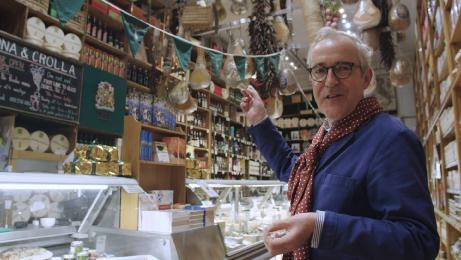1. Being too hard on yourself
Do you put yourself down a lot or feel guilty about your diet or body? Scientific studies show that being overly critical of yourself won’t help achieve your goals. When we feel bad about ourselves, we are more likely to do things that provide comfort rather than pushing ourselves to make healthier choices.
2. Setting goals without a deeper meaning
It’s essential that you know the reason “WHY” you want to eat healthier. Go beyond weight loss or appearance goals (these can quickly turn into self-criticism). Dig deep and think about the things that are REALLY important to you. Consider CORE VALUES (the things that bring meaning to your life) such as your family, having energy to walk a pet or doing a favourite activity.
3. Having an all or nothing approach
Have you ever been on a boring diet plan that made you give up all your favourite foods? Be wary of any diet plan that lists foods as “BAD” or “GOOD”. Healthy eating should NOT be a punishment.
Because if it is, unhealthy foods become a reward! Focussing too much on avoiding foods makes them more tempting and makes long-term changes seem impossible.
Things to try instead:
- Commit to eating healthier from a place of SELF CARE (not of self-criticism). Would you speak to a parent, partner or friend as critically as you speak to yourself? If not, it’s time to offer yourself some compassion. You are doing your best.
- Remind yourself daily WHY you want to eat well. For example, you want to feel proud about role-modelling for the kids; your “WHY” might involve eating more vegetables to encourage the kids to eat them too!
- Try the “80/20 approach”. Eat “healthy” 80 % of the time and make space for less healthy, with the remaining 20% for less healthy foods that bring you joy. The “Safefood Food Pyramid” is a good guide, available on www.safefood.eu
- Start with ADDING something healthy to your usual routine and build from there. One extra portion (80g or a fist-sized amount) of colourful vegetables daily can reduce your heart attack risk by 5%. Increasing it to 10 portions per day reduces your risk of dying by 31%!
Deciding to make changes is hard, ESPECIALLY during a pandemic. If you would like more information or support, see the Irish Nutrition & Dietetic Institute website for a list of registered dietitians by clicking here.
**********

Recipe of the Week: Salad of Apples, Coolea Cheese, Hazelnuts, Sprouts & Apple Syrup by Rory O’Connell, Irish chef, see www.cookingisfun.ie
This is a lovely combination of ingredients that delivers a very fresh tasting and delicious salad. In another meal it would be lovely served alongside grilled or roast pork.
I search out Irish home grown apples and I use an apple syrup from the marvellous High Bank farm in County Kilkenny.
The Coolea cheese is from Macroom in County Cork and is another outstanding example of the quality of some of the artisan food being produced in Ireland now.
I have added myrtle berries as an optional ingredient here. If you do not have them growing as most people will not, the salad is still great without them. However the berries which come from the shrub, Myrtus Ugni, are really delicious and the plant which is pretty much maintainance free will grow in a large pot or directly in the ground. It is evergreen with small and pretty glossy leaves and produces sweet little red berries late in the year when virtually all other fruit have disappeared for the winter. I use the berries in starters, main courses and desserts and would not be without it. I highly recommend it as a beautiful thing to look at and a beautiful thing to eat and in my experience it is pretty much the least troublesome plant in the garden. It fruits year after year.
Ingredients:
Dressing:
4 tablespoons olive oil
Juice of 1 Lemon
2 teaspoons apple syrup
Sea salt and freshly ground pepper
Salad:
8 Brussel sprouts, outer leaves removed and thinly sliced on a mandolin or by hand
1 dessert apple, cut into quarters, core removed and cut by hand into 5mm slices
25g hazelnuts, roasted, peeled and coarsely chopped
8 – 12 leaves of radicchio
8 – 12 sprigs of watercress
20 shavings of Coolea cheese
Method:
- Whisk all of the dressing ingredients together and taste and correct seasoning.
- Combine the brusells sprouts, apples, hazelnuts, radicchio and watercress in a large bowl. Give the dressing a good shake and pour over the ingredients. Use your hands to lightly lift and toss the salad.
- Place in a mound on a large wide serving dish. Scatter shavings of Coolea over the salad and thread a few through the leaves as well. Add the myrtle berries now if using.
- Sprinkle a small pinch of sea salt and freshly ground pepper over the entire salad and serve as soon as possible.
**********
Free Fitness Classes Online
The Mardyke Arena UCC will run the last week of their Fitness Classes Online via the Mardyke Arena UCC Facebook page this week. Here is the schedule:
Monday – HIIT – 6pm
Tuesday – Legs, Bums & Tums – 6pm
Wednesday – Pilates for all – 6pm
Thursday – Legs, Bums & Tums – 6pm
Friday – HIIT – 1pm
**********




 Return to the News section
Return to the News section